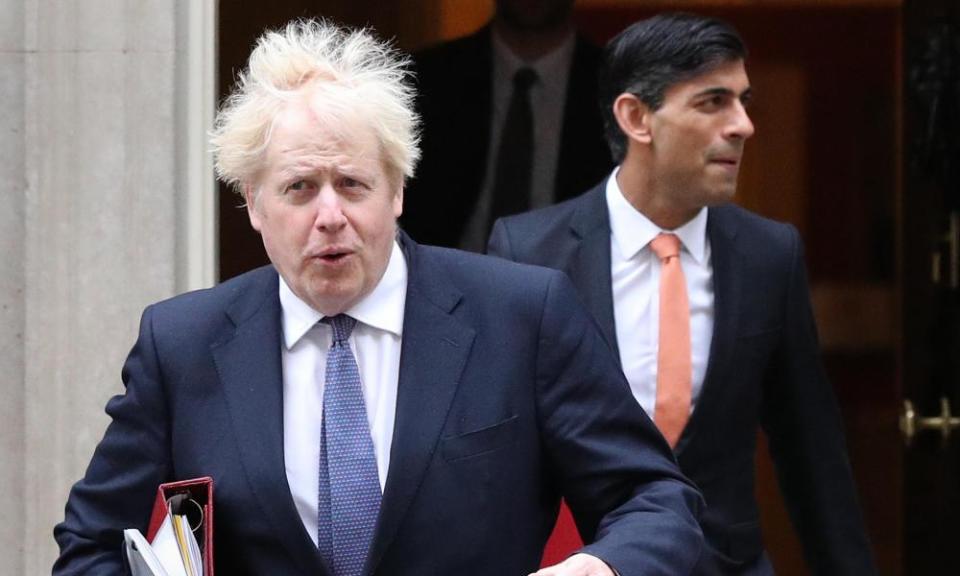Sunak’s letter to PM puts desire to crack down on Covid subsidies on record

Last August, it was “eat out to help out”, launched by a beaming and maskless chancellor in Wagamama on London’s South Bank, carrying plates of noodles to nonplussed customers. This year, it’s “fly out to help out”.
With just a few weeks left of the school summer holidays, the airline and tourism industries are facing another bleak summer. As the threat of possible new restrictions hangs over holidays, and the costs of testing prove prohibitive for many families, many have decided to take their vacation in the UK, even though travel restrictions will ease for fully vaccinated travellers from 16 August.
Sunak is preaching to the choir in his letter to the prime minister demanding an even greater relaxation of travel rules to save summer holidays abroad, despite notes of caution from scientists and some in the Department of Health about the perils of possibly importing new variants.
Related: Rishi Sunak pushing Boris Johnson to relax travel rules
Boris Johnson is not known for his caution and is expected to reopen green list travel, dropping most requirements for all travellers, to many holiday destinations on Thursday.
But it is the style, not the content, of the letter to Johnson from Sunak that will raise eyebrows in Westminster. Johnson will already be well aware of his chancellor’s views on the subject, but the leaked letter is a marker that Sunak wants his views on the record.
It is the latest in a series of interventions Sunak has made to try to wrest back some form of control over economic policy and the public finances after a torrid 18 months where the fiscally hawkish chancellor has been forced to pay people’s wages to keep business afloat.
He is saying that more subsidy is out of the question, having already made clear that Johnson cannot spend his way out of the pandemic in order to boost the economy and rebuild his popularity.
Take the stalemate over social care: Johnson could have announced a plan to overhaul the system this summer, taken the credit and allowed Sunak to have the row over unpopular tax rises this autumn. But the Treasury firmly put its foot down, saying any new policy had to show how it would be paid for.
A rise in national insurance is clearly the Treasury’s preferred policy, widely briefed ahead of the anticipated announcement.
That plan, which would hit lower-paid workers the hardest and would break the Tory manifesto, has been met with suspicion by the cabinet and Tory MPs, some of whom accused the Treasury of trying to pressure the prime minister into it. Though more are likely to agree with Sunak’s intervention on travel, many are starting to see a pattern.
Sunak is highly ambitious and is widely seen as Johnson’s natural successor. He is the second most popular Tory in the party after Liz Truss, according to ConservativeHome’s latest poll, which has seen Johnson’s personal popularity fall by 36 points. Though denied by No 10, there are longstanding rumours that Johnson may be keen to depart Downing Street and make money on the circuit after winning another election.
In the short term, there are numerous tests to come for the shaky partnership between Nos 10 and 11 this autumn, including rows over tax, a spending review where the chancellor will want to tighten the purse strings, as well as the threat of industrial action from medics and other public sector workers over pay.
These are some of the dangers ahead for Johnson, but they are also traps for his chancellor. So far Sunak’s reputation has been flying high among voters – for paying their wages – and among fellow Tory MPs, who see him as the bastion against Covid restrictions. If Sunak insists on higher taxes and pay cuts, that popularity could wane.

 Yahoo News
Yahoo News 